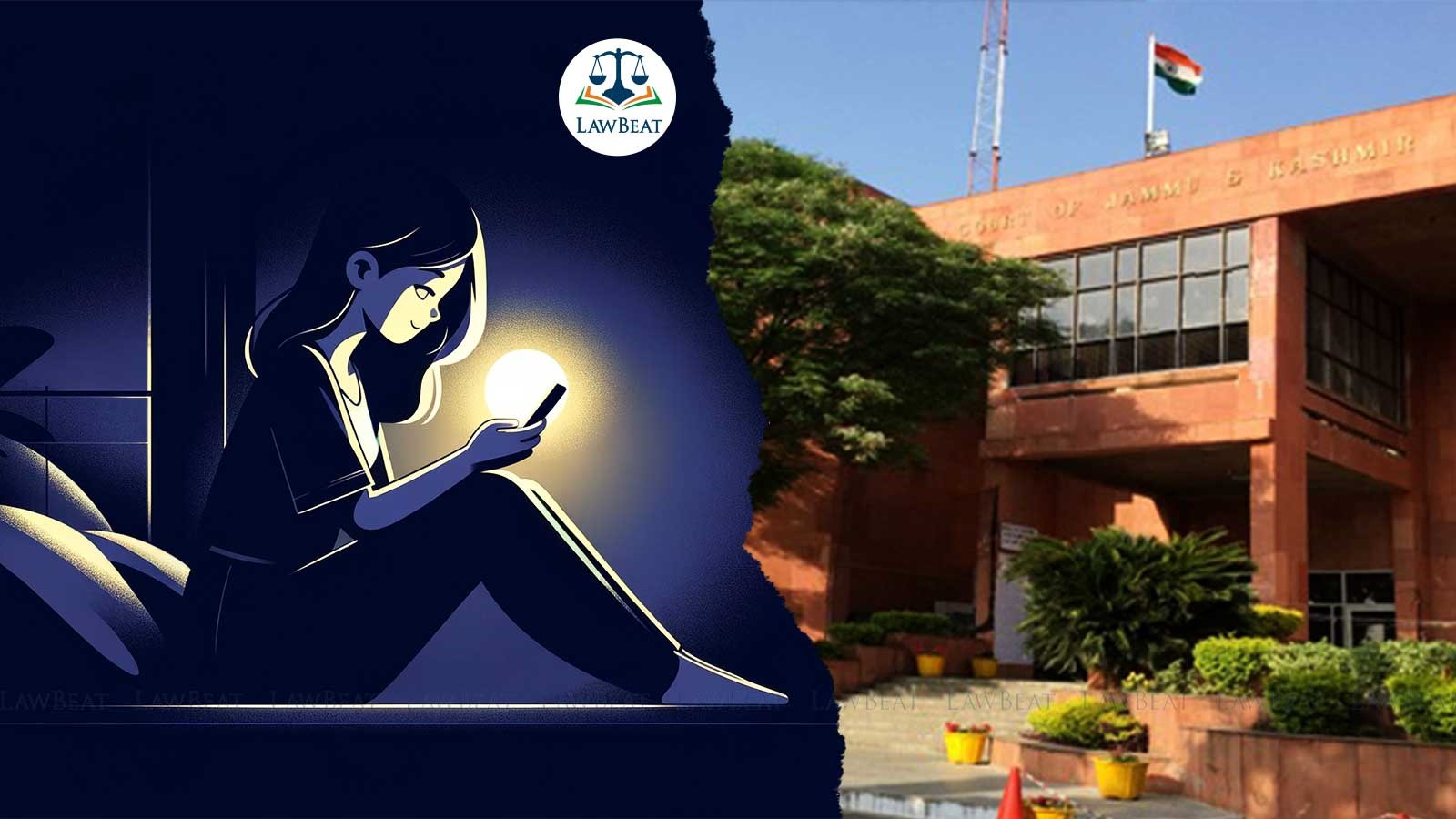Wife Answering Calls From Unknown Numbers Late At Night Does Not Constitute Abetment To Suicide : J&K and Ladakh HC

The court acknowledged the potential impact on the deceased's mental state caused by her wife’s late night calls but ruled that these actions did not constitute abetment to suicide
In a significant verdict, the Jammu and Kashmir and Ladakh High Court has declared that a wife answering calls from unknown numbers late at night does not constitute abetment to suicide under Section 306 of the Indian Penal Code (IPC) and the same would also not fall within the ambit of abetment as defined in Section 107 IPC.
Justice Sanjeev Kumar delivered the verdict while rejecting a criminal revision petition lodged by Kunti Devi, the mother of the deceased, Surinder Kumar, against the exoneration of her daughter-in-law Neelam Devi from the case. The court said, “It is a clear case where respondent No. 1 (Neelam Devi) may, on the basis of evidence collected by the Investigating Officer, be held responsible for the extreme step of ending his own life taken by the deceased, yet it cannot be, by any stretch of reasoning, said that the suicide committed by the deceased was abetted by the respondent No. 1.”
The case revolved around the troubled marriage between Neelam Devi and Surinder Kumar, who got married in 2019. Tensions between the couple frequently erupted over Neelam Devi's habit of attending calls from unidentified numbers during the mid-night hours. Surinder Kumar purportedly objected to these calls, but Neelam Devi persisted in answering them. The discord eventually led to Surinder Kumar's tragic suicide.
Challenging the discharge, Kunti Devi, the petitioner, argued that the trial court has “failed to appreciate the evidence on record and has drawn conclusions on mere conjectures and surmises” and prematurely absolved Neelam Devi from liability. She contended that the court should have considered the evidence collected by the prosecution and determined if a prima facie case existed against Neelam Devi.
Advocate Jagpaul Singh, representing the respondent No. 1, argued that the trial court had rightly evaluated all the evidence, both oral and documentary, and concluded that the prosecution couldn't establish a case of abetment to suicide under Section 306 of the IPC. He submitted that “The trial court has though found that the suicide committed by Late Sh. Surinder Kumar was as a result of the conduct of the respondent No. 1 yet there is nothing on record to show that such suicide was either instigated or aided by respondent No. 1 by any act or illegal omission.”
After examining the arguments presented by both parties, the court emphasised that while the deceased's suspicions regarding his wife's behaviour may have been a contributing factor to his decision, they did not meet the legal threshold for abetment under Section 107 IPC.
The court while holding that “the order impugned passed by the trial court is factually legal and in consonance with law,” acknowledged the deceased's distrust of respondent No. 1 due to her alleged behaviour. The court noted “The evidence collected by the prosecution taken to be correct on its face value would not indicate that the respondent No. 1 ever instigated the deceased to commit the suicide or intentionally aided the commission of the offence by any other act or illegal omission.”
The court noted that the deceased harboured suspicions regarding the character of respondent No. 1, who allegedly attended phone calls from unknown numbers during late hours, despite objections from the deceased on multiple occasions. Further, the court observed that the wife also threatened the husband of filing a false case. It ruled that while these actions may have contributed to the deceased's state of mind, the court concluded that they did not constitute abetment.
Echoing the trial court's reasoning, the high court found no merit in the criminal revision petition and dismissed it accordingly.
Cause Title: Kunti Devi v Neelam Devi [Crl R No. 21/2022]
